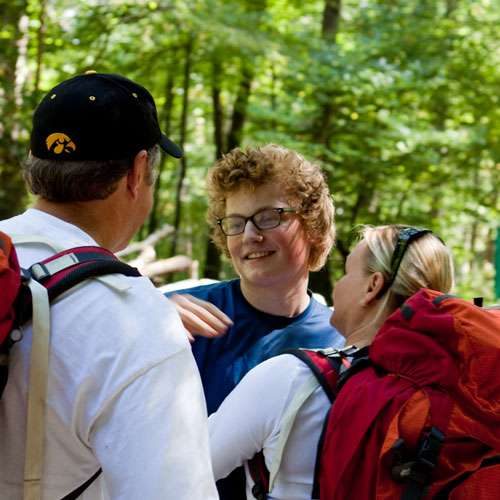Imagine waking up and looking in the mirror to see a body that you don’t belong in. This is not the beginning of a science fiction film. This is real life and it happens every day for people with gender dysphoria who have not fully transitioned into the gender they align with.
What is gender dysphoria?
Gender dysphoria, which used to be known as “gender identity disorder”, is the general term for any individual who is discontent with their assigned gender at birth. It is not the same as “gender non-conformity” which relates to behaving in a way that is perceived as different from cultural norms of a specific gender. For example, if your female child can be fits the stereotypical description of a “tomboy”, that might be considered gender non-conforming. If she says that she is actually a boy and would prefer to use he/him/his pronouns, they may be gender dysphoric (or transgender). 
Accepting and affirming your child’s identity
For parents of a child who is persistent, consistent, and insistent that they are the opposite gender, your child is most likely gender dysphoric. Parents of children who continue to insist that they are the opposite gender may worry that this is a phase. However, the best thing you can do in this situation is to accept your child for who they are.
Not affirming your child’s chosen identity can be extremely harmful. Transgender youth who are not accepted by their family members or friends are more likely to self harm and take their own lives. They are also likely to have high rates of depression and anxiety. On the other hand, those who are affirmed by their parents are 82 percent less likely to attempt to take their life. In fact, transgender teens who are supported by their parents have the same depression and anxiety rates as the rest of the teen population.
Options for Parents
Every parent wants to see their child comfortable and confident in who they are. That’s why starting with a social transition for your gender dysphoric child is often the best first step.
The social transition, in which your child will start to dress and identify as their chosen gender, is completely reversible. It’s a good way to see how your child feels when given the opportunity to appear in public as who they believe to be their true selves. For many parents whose children have undergone a social transition, there is a night and day difference between the way their child behaved before the transition and afterwards. Most have shared with me that their child underwent a drastic transformation from a sad, angry child to a happy, confident child.
Possible Course of Action
If the social transition is not successful and your child decides that it was just a phase, they can go back to dressing as their birth assigned gender. However, if your child really comes out of their shell after this social transition, it may be time to consider the next steps for them. These steps may be:
- Hormone blockers: For children who have not quite hit puberty, hormone blockers might be a good option if you and your child are still trying to figure out what the next course of action will be. They block the hormones which carry out puberty. This delays the growth spurts and development that your child may not want. Hormone blockers are completely reversible. Once your child stops taking them, they will go through puberty as normal.
- Cross-sex hormones: If you and your child choose to continue with the transition process, administering hormones from their chosen sex might be the best next step. This will take them one step closer to feeling confident and happy in their own skin. By taking the hormones of the opposite gender, your child will begin to develop as if they are the opposite gender.
Resources
The following are some great resources for individuals interested in learning more information about gender identity and gender dysphoria:
- https://www.genderspectrum.org/
- Brill, Stephanie A., and Rachel Pepper. The transgender child:. San Francisco, CA: Cleis Press, 2008. Print.
- Ehrensaft, Diane, and Edgardo Menvielle. Gender born, gender made: raising healthy gender-nonconforming children. New York, NY: The Experiment, 2011. Print.
- Jennings, Jazz. Being Jazz: my life as a (transgender) teen. New York: Crown, 2016. Print.
- Duron, Lori. Raising my rainbow: adventures in raising a slightly effeminate, possibly gay, totally fabulous son. New York: Broadway , 2013. Print.
- Sallans, Ryan K. Second son: transitioning toward my destiny, love and life. Omaha: Scout Publishing, 2013. Print.
- Pepper, Rachel. Transitions of the heart: stories of love, struggle and acceptance by mothers of transgender and gender variant children. San Francisco, Calif: Cleis, 1220. Print.
- Solomon, Andrew. Far from the tree: parents, children and the search for identity. New York, NY: Scribner, 2013. Print.
- Whittington, Hillary. Raising Ryland: our story of parenting a transgender child with no strings attached. New York: William Morrow Paperbacks, 2015. Print.
- Nutt, Amy Ellis. Becoming Nicole: the transformation of an American family. New York: Random House, 2016. Print.
- Gender Revolution: A Journey With Katie Couric
- The Trans List
Trails Carolina can help
Trails Carolina, a wilderness therapy program for teens ages 10-17, can help your teen achieve success. We help young people struggling with challenges such as depression, anxiety, defiance, and school refusal.
For more information about Trails Carolina, please call 800-975-7303.
Get started today
Contact us today to learn how Trails Carolina can help your family
Trails saved my daughter’s life. Amanda is an amazing human and a brilliant therapist. I am so grateful to her, Science Steve, and the other wonderful people who could reach my daughter at a time when I could not.
Margot Lowman August 2022
Great life changing experience for our son. After becoming addicted to gaming during covid he was very depressed. At Trails he experienced the wilderness, Science Steve, learning survival skills and top notch therapy and support etc… I highly recommend! This gave our son and our family a renewed family bond full of love and excitement about his bright future.
Winnifred Wilson July 2022
Outstanding clinical work and superb staff! There’s a great culture at this company and it shows with how they engage with families/clients.
Kristin Brace June 2022
Discover If Trails Is The Right Program For Your Child
Take our short online assessment and help us better understand how we can help your family.




